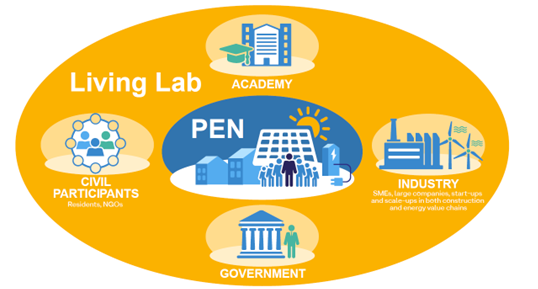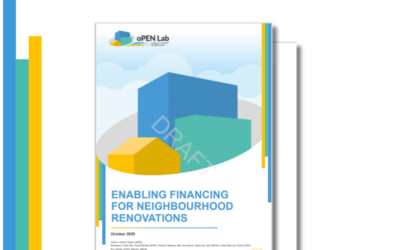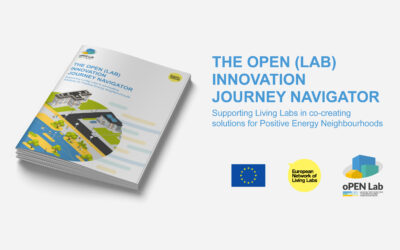The positive energy neighbourhood (PEN) approach can contribute to scaling up renovations while engaging local communities in the energy transition. This report includes an analysis of the EU policies relevant for underpinning the PEN approach to building renovations.
The Energy Performance in Buildings Directive (EPBD) explicitly mentions the neighbourhood approach, sets minimum energy standards, and addresses energy poverty, all of which are elements of the PEN approach. The Renewable Energy Directive (REDIII) raises renewable energy targets, promotes renewable energy integration in buildings, and streamlines permit procedures, which also supports PEN principles and facilitates the procedures for their creation. The Energy Efficiency Directive (EED) sets energy-saving targets, broadens the energy efficiency first principle, and prioritises addressing energy poverty. Effective national implementation is pivotal for PENs to leverage the opportunities presented by these directives.
Key insights from the EU-level policy framework for EU-level and national policymakers and the financial sector include:
- A harmonised definition and framework for PENs is needed to enable assessment of progress towards policy goals.
- During implementation, tailored actions and policies are needed to protect vulnerable households and mitigate energy poverty, including supporting access to renovation and renewable energy systems.
- Financing solutions must be better designed to benefit the income groups that need them.
- Assessment methods of social and environmental co-benefits of PENs are needed to enable access to public and private environmental, social and governance (ESG) finance.




